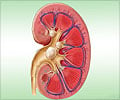A new study finds that children who are excluded from discussions about their hospital care often feel scared and angry that no-one is listening to them or telling them what is going on.

Irish researchers spoke to 55 children and teenagers, aged from seven to 18, from three hospitals, individually or in focus groups. The feedback they received has led the Dublin-based team to call for guidelines to ensure that children's voices are heard when it comes to matters that directly affect their health.
"Healthcare professionals and parents appear to play a significant role in whether children are encouraged and able to take part in decisions about their health" says Professor Imelda Coyne from the School of Nursing and Midwifery at Trinity College Dublin. "Clearly some may have reservations or concerns about children's participation and this suggests the need for clear guidelines/policies that reflect the views of all stakeholders."
There were equal numbers of children with acute and chronic illnesses in the study, from wards and clinics in both general and children's hospitals. Most had been hospitalised before (71 per cent) stayed less than seven days (85 per cent) and lived with two parents (80 per cent).
Key findings of the study included:
- The children wanted to take part in discussions and have their views and concerns taken seriously. They also felt that they had a right to participate in matters that affected them and their bodies. Some felt included in discussions, but most reported difficulties. Advertisement
- Significant factors that enhanced participation were familiarity with the hospital and procedures, the child's age, their relationship with health professionals and how long they were in hospital. For example, knowing the health professionals made children feel able to ask questions freely and express their concerns.
- Many children relied on their parents to act as advocates and explain what was happening, an important finding that has received little attention in previous research. Some younger children also used their parents as 'buffers' to filter out potentially worrying information. But most relied on their parents out of necessity because they had problems communicating with health professionals. Advertisement
- The way that health professionals communicated and behaved was a key barrier to children getting involved. Most of the children reported that health professionals tended to 'do things' to them with very brief explanations or none at all. Many also reported being unable to ask questions or volunteer information, because consultations were rushed. Health professionals also excluded them, by directing information at their parents, and used language they struggled to understand.
- Parents also played a significant role in supporting or hindering children's participation. Children valued their parents' role as mediators when it came to information, but parents could stop them playing an active role in discussions by answering questions for them and not supporting their attempts to participate.
- Children's views on decision-making varied. The fact that they regarded them as either 'small' or 'serious' decisions is a new finding. They all wanted to take 'small' decisions related to everyday care, diet and medication, but nearly half preferred to leave 'serious' decisions about issues like surgery to their parents and health professionals. Others wanted to make those decisions or preferred them to be shared.
- "He kept having to talk to Mam on her own and I was getting really worried…I need to know because otherwise I'm going to be sitting there panicking going all paranoid about the worst scenario." 13-year-old girl.
- "They'd use big words and I wouldn't be able to understand them and then I'd ask my father what did they mean and he wouldn't really tell me." 11-year-old boy.
- "They just tell you, they don't explain everything…I wouldn't have the guts to say anything, he comes across as a very intimidating man." 17-year-old girl.
- "I think children should get the opportunity to tell what they think it is and not just what their parents or the doctors think it is." 13-year-old boy.
- "I never heard anyone saying do you want me to do this or not and it's not their decision, it's not their bodies." Nine-year-old girl.
- "My Mam was talking to the doctor and I said what's this all about and she just kept talking and nobody listened to me." 13-year-old boy.
"Despite the large number of reports and publications supporting children's right to participate, the actual implementation of the principle in healthcare is questionable" says Professor Coyne.
"Healthcare organisations need to develop cultures where participation is firmly embedded, not just a desirable add-on. Communicating with children, and including them in decisions about their care, conveys respect, enhances and develops their decision-making capabilities and contributes to psychosocial well-being. Adopting a child-centered approach is an important investment."
Source-Eurekalert









